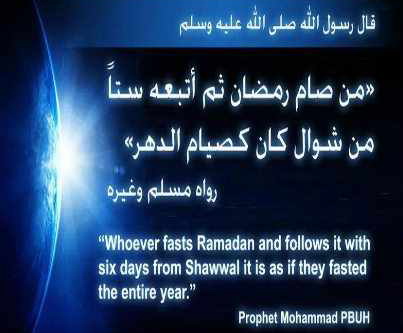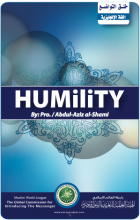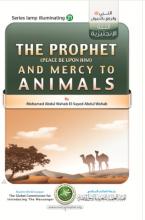The Prophet of Mercy Website
Muslim World League - Global Commission for Introducing the Messenger
While the Prophet was once returning to his house after talking to his Companions in the mosque, a Bedouin pulled him by the collar and said rudely: ‘O Muhammad! Give me my due! Load up these two camels of mine. For you will load them up with neither your own wealth nor the wealth of your father.’ To this impertinence, God’s Messenger gave the response, without showing any sign of offence: Give that man what he wants!41
Zayd ibn San’an narrates:
Once, God’s Messenger borrowed some money from me. I was not yet a Muslim then. I went to him to collect my debt before its due time, and insulted him, saying; ‘You the children of ‘Abd al-Muttalib, are very reluctant to pay your debts!’ ‘Umar became very angry with this insult of mine and shouted; ‘O enemy of God! Were it not for the treaty between us and the Jewish community, I would cut off your head! Speak to God’s Messenger politely!’ However, God’s Messenger smiled at me and, turning to ‘Umar, said: Umar, pay the man his debt! And add to it the amount of twenty gallons because you have frightened him!
‘Umar relates the rest of the story:
‘We went together. On the way, Zayd spoke to me unexpectedly: ‘O ‘Umar! You got angry with me. But I have found in him all the features of the Last Prophet recorded in the Torah, the Old Testament. However, there is this verse in it: ‘His mildness surpasses his anger. The severity of impudence to him increases him only in mildness and forbearance.’ In order to test his forbearance, I uttered what I uttered. Now I am convinced that he is the Prophet whose coming the Torah predicted, so, I believe and bear witness that he is the Last Prophet.’42
The mildness and forbearance of God’s Messenger sufficed for the conversion of Zayd ibn San’an, who was one of the Jewish scholars of the time.
God’s Messenger himself was extremely meticulous in practising the religion. Nobody could imitate him in performing supererogatory prayers. Despite being sinless, he spent more than half the night praying in tears, and sometimes fasted two or three days successively. Every moment, he took a further step towards the ‘praised station’ set for him by God. However, he was very tolerant towards others; in order that his Umma should not be put under a heavy burden, he did not perform the supererogatory prayers in the mosque. When a complaint was circulated about an imam (prayer leader) because he prolonged the prayer, the Prophet climbed the pulpit and said:
O you people! You cause aversion in people from prayer. Whoever among you leads a prescribed prayer should not prolong it, for there are among you people who are sick or old or who are in urgent need.43
Once his congregation complained to God’s Messenger about Mu’adh ibn Jabal that he prolonged the night prayer. His love for Mu’adh did not prevent the Messenger from reproaching him, saying, Are you a trouble-maker? Are you a troublemaker? Are you a trouble-maker?44
The mildness and forbearance of God’s Messenger, upon him be peace and blessings, captured the hearts and preserved the unity of the Muslims. As stated in the Qur’an, if he had been harsh and hard-hearted, people would have dispersed from about him. But those who saw him and listened to him were endowed with Divine manifestations to the extent that they attained the rank of sainthood. For example, Khalid ibn Walid was the general of the Quraysh who caused the Muslims to experience a reverse in the Battle of Uhud. However, when he was not included in the army that went out for a military campaign on the day following his conversion, he was upset and sobbed.
Like Khalid, Ikrima and ‘Amr ibn al-‘As were among those who did great harm to God’s Messenger and the Muslims. When they believed, each became a sword of Islam drawn against unbelievers. Ibn Hisham, the brother of Abu Jahl, converted to Islam shortly before the death of God’s Messenger, upon him be peace and blessings. He became so sincere a Muslim that just before his martyrdom at the Battle of Yarmuk two years after the death of God’s Messenger, he did not drink the water that Hudayfa al-‘Adawi offered him, asking him to take it to the one lying nearby groaning for water. He died, having preferred his Muslim brother over himself.45
Those people attained high ranks in the enlightening atmosphere of God’s Messenger, upon him peace and blessings. They were included among the Companions, those regarded and respected as the most virtuous people after the Prophets by almost the whole body of the Muslim Ummah since the earliest days of Islam. In order to explain their greatness, Said Nursi, the great Muslim revivalist of the twentieth century, says:
I had been wondering why even the greatest of saints like Muhyi al-Din ibn al-‘Arabi are unable to attain the rank of the Companions. One day God Almighty enabled me to perform in prayer a prostration, which I have succeeded in doing only once during my life. I concluded that it is impossible to attain the ranks of the Companions because all the prostrations of the Companions were like that in meaning and merit.46
It was God’s Messenger who brought up the Companions. It is enough to establish the greatness of the Companions that they succeeded despite their small number in conveying Islam to the farthest areas of Asia and Africa within a few decades, and Islam was rooted in those areas so deeply that, despite the concerted efforts of the global enemy powers for centuries backed with all kinds of machinery and technological facilities, to remove it from the surface of the earth, it continues to gain new momentum every passing day and is the sole alternative for the future salvation of humankind. The Companions, may God be pleased with them all, developed from the wretched state of the pre-Islamic Age of Ignorance to being guides and teachers of a considerable part of mankind until the Last Day, and the vanguard of the most magnificent civilization of history.
God’s Messenger, upon him be peace and blessings, was a man of absolute balance. His universal compassion did not prevent him from executing Divine justice, and his mildness and forbearance did not go to extremes of overlooking any breach of Islamic rules or self-humiliation. For example, in a military campaign, Usama ibn Zayd threw an enemy soldier to the ground. When he was about to kill him, the man confessed belief. However, judging that confession to be due to fear of death, Usama killed the man. When informed of the incident, God’s Messenger, upon him be peace and blessings, became so angry with Usama that he reprimanded him severely, saying: Did you cleave his heart open and see (whether his confession of belief was due to fear of death)? He repeated this so many times that Usama said later: ‘I wished I had not yet become a Muslim on the day I was scolded so severely.’47
Likewise, one day, Abu Dharr got angry with Bilal and insulted him, saying: ‘You, the son of a black woman!’ Bilal came to God’s Messenger and reported the incident in tears. The Messenger reproached Abu Dharr, saying: Do you still have a sign of Jahiliya? Repentant of what he did, Abu Dharr lay on the ground and said: ‘The head of Abu Dharr will not be raised (meaning he will not get up) unless Bilal put his foot on it to pass over it.’ Bilal forgave him and they were reconciled.48
Such was the brotherhood and the humanity Islam created between once savage people.
ENDNOTES:
38. Muslim, “Zakat,” 142, 148; Bukhari, “Adab,” 95, “Manaqib,” 25.
39. Bukhari, “Adab,” 95; Muslim, “Zakat,” 142.
40. Bukhari, “Hiba,” 28; Abu Dawud, “Diyat,” 6.
41. Abu Dawud, “Adab,” 1; Nasa’i, “Qasama,” 24.
42. Suyuti, al-Khasa’is, 1.26; I. Hajar, al-Isaba, 1.566.
43. Bukhari, “‘Ilm,” 28, “Adhan,” 61.
44. Muslim, “Salat,” 179; Nasa’i, “Iftitah,” 71; Bukhari, “Adab,” 74.
45. Hakim, Mustadrak, 3.242.
46. Said Nursi, Sozler, Istanbul, 1986, 459.
47. Muslim, “Iman,” 158; I. Ma’ja, “Fitan,” 1.
48. Bukhari, “Iman,” 22.
http://www.mohammad-pbuh.com/3
******







